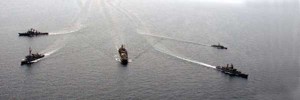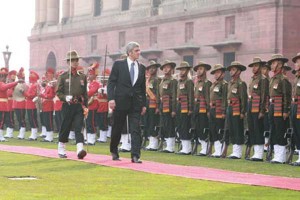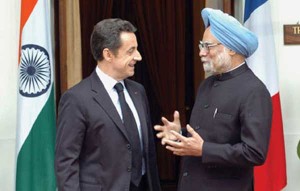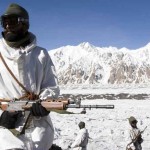Obstacles to Indo-French Relations: At the outset, it is necessary to point out that today no major political differences darken the sky between Paris and Delhi except, of course, the unexpected cancellation of the order for the Fennec Eurocopter choppers. France has constantly been supportive of India, particularly for a permanent seat for India in the UN Security Council and has shown its comprehension in the nuclear domain. The collaboration could however be more meaningful.
The strategic partnership instituted in 1998 has in the recent years been devalued by the multiplication of such accords with all and sundry. There is no doubt that further innovative steps need to be taken to sustain the 1998 momentum.
From India’s Side
It is interesting to look at what are the main hurdles to be overcome if progress has to be made in this direction.
After September 11, 2001, it became even more obvious that India and Pakistan could not be equated.
The blame for the relative stagnation of the relations between France and India cannot be laid on one side only. There is also no point going back into the past as most of the subjects which have divided Delhi and Paris, whether it is the colonial hangover, India’s so-called non-alignment or France’s adherence to the Western position on the Kashmir issue, do not exist anymore.
In India, one of the hurdles (at least in the field of defence) seems today to be the bureaucratic frame of mind which is not compatible with the speedy modernisation of the armed forces. In the recent months, India had to suffer the cancellation of several important armament deals.27 It has not only a negative impact on the defence forces preparedness-and the Indian nation will ultimately pay the price-but India’s image also takes a beating. “It is impossible to do business with India” is a motto often heard.
Also read: Indo-French Friendship to Partnership-I
As Ajai Shukla, a journalist with an Army background put it an article in the Business Standard: “The cancelled purchase from Eurocopter had taken six years to fructify. Whether another selection procedure will end in a perfectly objective decision is already well known: it will not”. It is true for all the other deals. Many foreign suppliers are now asking: will the same fate await the 126 fighter planes?
 Shukla also reveals that India is the only major country that plans its defence one year at a time. India is supposed to have a 15-year Long-Term Integrated Procurement Plan (LTIPP), but it has never taken a concrete shape.Another issue which seems to hamper the development of a deeper partnership with Paris is Delhi’s sudden closeness with the Bush Administration, to the exclusion of other partnerships. There would be nothing wrong in this proximity if it did not get in the way of Delhi’s relations with other countries. It is unfortunately a fact that many Indian leaders today believe that the solution to all problems can come from the United States only, while another category of politicians sees only devilish influences emanating from the US. As a result, nothing moves.
Shukla also reveals that India is the only major country that plans its defence one year at a time. India is supposed to have a 15-year Long-Term Integrated Procurement Plan (LTIPP), but it has never taken a concrete shape.Another issue which seems to hamper the development of a deeper partnership with Paris is Delhi’s sudden closeness with the Bush Administration, to the exclusion of other partnerships. There would be nothing wrong in this proximity if it did not get in the way of Delhi’s relations with other countries. It is unfortunately a fact that many Indian leaders today believe that the solution to all problems can come from the United States only, while another category of politicians sees only devilish influences emanating from the US. As a result, nothing moves.
Let us not forget that the US boycotted India and slammed heavy sanctions on its economy while Paris stood by Delhi. This seems to be forgotten as soon as an Indian leader receives a pat on the shoulder from the US President.
Another factor is China. Washington needs to contain the ‘rise’ of the Middle Kingdom. A couple of years ago, a Pentagon report on China’s military advised Washington planners to ‘take more seriously the possibility that China might emerge as a strategic rival to the US.’
The report was released when Dr Manmohan Singh arrived in the US in July 2005.28 Pundits deduced that Washington was keen to develop a new partnership with Delhi to counter Beijing. During the last two or three years, Washington appears keen to use Delhi for its own interests. France has no place in such schemes.
From France’s Side
In the past, France’s India policy has been dependant of many external factors: French colonial past in Indochina and Africa, General de Gaulle’s ‘discovery’ of China, Paris’ alliance with other Western powers, etc.; but since 1998, Paris has turned a page. The policy of equidistance between Delhi and Islamabad which did hamper the ‘friendship’ between Paris and Delhi, is no more. After September 11, 2001, it became even more obvious that India and Pakistan could not be equated29.
 Ali Yavar Jung, the Indian Ambassador in France had told de Gaulle in November 1962 that France “had the advantage, in India’s eyes, to be economically and financially strong and at the same time, had level-headed policies, and can not be a compromising power like the Soviet Union and the US.”
Ali Yavar Jung, the Indian Ambassador in France had told de Gaulle in November 1962 that France “had the advantage, in India’s eyes, to be economically and financially strong and at the same time, had level-headed policies, and can not be a compromising power like the Soviet Union and the US.”
Today, while maintaining ‘privileged’ relations, Delhi and Paris stay short of engaging further. There is a French word which characterises perfectly the French attitude: frilosité. While the dictionary translates it as ‘overcautiousness’ or ‘sensibility to cold’, it can also be translated by ‘the absence of boldness’, a quality supposedly engrained in the French character. Before the 1989 Mitterrand visit, Le Monde’s title was “Absence of disagreement, but lethargic co-operation”. Though tremendous changes have occurred since then, one sometimes has the feeling that this frilosité does not allow the relations to go a step further. The same article quoted an Indian business man dealing with France: “You are able to demonstrate true solidarity [with India]; sometime strike great commercial ‘coups’, but between these sudden initiatives, you don’t work, you let the links loosen. This is the quality and the flaw of the French. It is true in the economic field and also on the politic one. Friendship or partnership, you have to look after it. Our relations are not bad, they are lethargic.”
It seems a correct judgment, 19 years after it was written and nine years after Chirac’s historic visit of 1998.
 It is regrettable that the 2006 visit was not prepared with enough seriousness. Otherwise how could the French MoD send the Clemenceau to Gujarat less than 2 months before the State visit?30
It is regrettable that the 2006 visit was not prepared with enough seriousness. Otherwise how could the French MoD send the Clemenceau to Gujarat less than 2 months before the State visit?30
The forthcoming visit of the new President of the French Republic seems to have been better prepared with the trips of the French Army and Naval Chiefs and the Foreign Affairs Minister. President Sarkozy, very popular in India for his dynamism, should further boost the relations. Will a further step be taken on Republic Day, with the French President as the Chief Guest? Hopefully it will.




